SCHOOLS REPORT UAE: WHAT MADE THE NEWS FOR SCHOOLS, PARENTS AND STUDENTS IN EDUCATION THIS WEEK?
The Schools Report brings you the SchoolsCompared.com official Weekly Briefing on the Hottest News in Education.
Every Friday we bring you the latest stories in education in the UAE and around the world in the last 7 days. Here’s what’s been happening this week…
This Week in Education. UAE Education News. First. Every Friday. Only from SchoolsCompared.com.
Museum visits do not improve GCSE results, study reveals
Trips to cultural destinations such as museums and theatres have long been thought to sharpen a child’s intellect, but a new study has revealed that such outings do not produce higher grades after all.
Academic research examining the impact of cultural capital looked into the ability of cultural visits to improve the life chances of children, and the extent to which it explains the inequality experienced by children from different financial backgrounds.
While many suggest that children from wealthier families are at an academic advantage due to their access to exhibitions and art galleries, the study did not find any correlation between higher attainment of grades at school and cultural encounters.
Instead, the researchers from the Universities of Sussex and Edinburgh found that reading activities by both parents and their children had a bigger effect on exam results. Activities such as reading for pleasure, visiting a library and discussing books at home significantly boosted GCSE results.
Museum and theatre trips do not yield higher GCSE results, study finds | The Independent
Push for private schools to shorten day by two hours as private sector Ramadan hours confirmed by UAE government
It’s official – the UAE’s Ministry of Human Resources and Emiratisation has instructed the private sector to reduce its workday by two hours daily – and this has historically meant that private schools quickly follow in reducing the school day.
What is less clear is how exactly each school will cut the overall number of hours schools are open.
Historically this has been left to schools, but often it is parents who pick up the pieces, particularly when children are at different schools with different hours. UAE government Ramadan working times for public sector employees will be from 9am to 2.30pm, from Monday to Thursday, and from 9am to 12pm, on Fridays of every week – but schools have to balance the complexities of timetables and needs of families, so it is rare for school hours to map public sector timings uniformly.
Find out more.
UAE teachers in crisis: Two years since the pandemic was declared, the true psychological impact of COVID-19 is only just emerging
On 11 March 2020 the World Health Organisation declared COVID-19 to be a pandemic for the first time. UAE schools had already switched to distance learning three days before, the 4 April 2020 lockdown announcement was imminent, and overnight the lives of people in the UAE turned inwards and upside down, becoming almost unrecognizable.
Today is two years on exactly from that fateful announcement, and the psychological impact of the pandemic is only just beginning to emerge.
While the focus has understandably been on the impact that COVID-19 disruptions have had on children, the impact on the teachers supporting those children has largely been forgotten.
Until now.
New figures released this week by the Dubai school regulator, the Knowledge and Human Development Authority (KHDA), show that the pandemic has taken an increasingly destructive toll on teachers’ mental health – getting worse even as restrictions have lifted and life has returned to something much closer to normal.
The results from the KHDA’s latest Adults@School Wellbeing Survey show there has been a huge leap in the number of teachers, teaching assistants and school leaders who say they struggle ever to switch off from work – a significant 68% at the end of 2021, compared to just 35% at the end of 2020.
Perhaps more worryingly, there has also been an increase in the number of adults in schools who describe themselves as “really struggling” in terms of wellbeing – up to 9% compared to 5-6% in the the previous three years.
Find out what’s making teachers struggle so much, what UAE teachers and Principals say about these results – and what schools can do to help teachers with their mental health. UAE teachers in crisis: Two years since the pandemic was declared, the true psychological impact of COVID-19 on teachers is only just emerging – Dubai schools, Abu Dhabi schools, Sharjah schools with fees, ratings and more – SchoolsCompared.com
Sharjah private schools announce full return to face-to-face learning
Sharjah private schools have announced a complete return to face-to-face classes for all pupils.
Attending in-person lessons will be mandatory for private school pupils from the new term starting in April.
Sharjah Private Education Authority and the National Emergency Crisis and Disaster Management Authority officials said they have announced a complete return to face-to-face learning as the Covid-19 situation has improved and vaccination rates are high.
The UAE reported 296 new coronavirus cases on Monday — the lowest number in 12 weeks.
In January, thousands of Sharjah pupils switched to remote learning as the emirate’s private education regulator confirmed at the time that online teaching remained an option.
At the time, many schools in the emirate had fully or partially moved online amid a sharp rise in Covid-19 cases in the UAE.
The vast majority of schools in the country, which are overseen by regulators in each of the emirates, have returned to full-time in-person learning since the start of this term.
Sharjah private schools announce full return to in-person classes (thenationalnews.com)
Teachers ‘buckling under strain’ of pupils’ mental health crisis
Schools and teachers are “buckling under the strain” of supporting the fast-growing number of schoolchildren developing mental health problems such as anxiety and depression, experts say.
Despite being the people pupils turn to most often when in distress, teachers are hampered in their desire to help by the profession’s widespread lack of training in tackling mental ill-health.
“Children’s burgeoning health needs are not currently being met by the health sector. Schools and teachers provide vital support but they are buckling under the strain of the demands placed on them,” according to a group of education and health experts writing in the journal of the Royal Society of Medicine.
This comes as a new survey by UAE school Royal Grammar School Guildford Dubai finds that 7 in 10 parents are worried that UAE schools are failing their children when it comes to mental health support.
Empty chairs: Almost two million pupils regularly missing school
Almost 1.8 million children missed at least 10% of school in the autumn term in England, according to new estimates.
The number of children missing at least half of school is also greater than previously thought, at 122,000.
The figures are based on information gathered from 145 councils for the Children’s Commissioner.
The investigation follows concerns some pupils have never fully returned to lessons after national lockdowns during the Covid pandemic.
It also found no reliable figures for children who never go to school at all, raising the prospects of a small, but vulnerable group of children who are entirely out of sight, and thus impossible for the authorities to keep safe.
This news comes as a UAE-based teacher, who wishes to remain anonymous, told SchoolsCompared.com that there has been a similar rise in the numbers of UAE-based students who are regularly missing school. Attendance has been harder to track since schools switched to online and hybrid forms of learning, and the gaps in student attendance are adding to ever-increasing teacher stress as they try to help their pupils achieve their potential on the run-up to exams.
UAE schools have got kinder after COVID – KHDA official
In findings that many will see as something of a surprise, students’ well-being in Dubai schools has either improved in the last five years or has stayed high, according to the Dubai Knowledge and Human Development Authority’s (KHDA) latest student well-being census, which was released on Wednesday – this despite the ravages, stress and disruption of the Covid-19 pandemic.
The findings are the concluding part of a five-year project that measures how students in Dubai’s private schools feel and think about their own wellbeing over time.
As one of the world’s largest cross-cultural studies on student well-being, the latest survey gathered data from 108,224 students, representing 86% of students from 189 Dubai private schools. The survey was answered by children between Year 5 and Year 13 in schools across Dubai.
Overall, Dubai students seem to rate their wellbeing highly, despite the impact of the pandemic, according to the results that the KHDA has released in an infographic.
Even more profoundly, schools have become even kinder post pandemic, according to the survey findings over time: In 2017, 78% of students in Grades 6 to 9 agreed that people at their school were treated respectfully and helped each other. By 2021, the figure had risen extraordinarily to 85%.
Pupils with Long COVID more likely to have poor mental health
Primary school-aged children with long Covid are significantly more likely to have a mental disorder than those without, according to a survey.
Today’s findings have fuelled calls for “urgent” extra resources for schools to tackle the mental health and wellbeing of pupils.
Data released today by the Office for National Statistics found pupils from Reception to Year 7 suffering from long Covid were around four times more likely to have at least one probable mental illness (30 per cent) than those without long Covid (7.7 per cent).
Like primary pupils, secondary school pupils were also more likely to experience mental ill health if they had long Covid (22.6 per cent) compared with those who did not (13.6 per cent). But, unlike for primary pupils, this was not found to be statistically significant.
Last year, a study from NHS Digital showed one in six children in England aged five to 16 reported having a probable mental health disorder in 2020, up from one in nine in 2017.
The data was collected using questions sent to parents across the country to answer on behalf of their children between November and December 2021.
Overall, around 1 per cent of primary school pupils were estimated to have had long Covid lasting at least 12 weeks since March 2020.
At secondary schools, the figure was slightly higher, with 2.7 per cent of students fulfilling all the criteria for long Covid at some point since March 2020.
UAE educators now need to pass an exam to legally teach – first set of UAE “teacher licences” issued
The Ministry of Education (MoE) has started issuing licences to eligible teachers who passed the required tests, reports Khaleej Times.
The process of issuing the Educational Professions Licence will be done in three phases, according to the MoE. The first batch of teachers received their licences earlier this week, while the next two batches will get them on March 21 and 28.
The Educational Professions Licence is a permit issued by the MoE, which enables its holder to work in the educational field.
The UAE introduced the pilot phase of the UAE Teachers’ Licensing System (TLS) in 2017. From 2021, the TLS teaching licence became a requirement for education professionals in the UAE. All principals, vice-principals, managers and teachers working across public and private schools have to hold a UAE teacher’s licence to work legally in the country. The idea is to enhance the quality of teaching and pedagogy in the country.
The system was co-developed by National Qualifications Authority (NQA), Ministry of Education (MoE), Knowledge and Human Development Authority (KHDA) , Abu Dhabi Department of Education and Knowledge (Adek) and Abu Dhabi Centre for Technical and Vocational Education Training (ACTVET).
The licence is obtained by passing two tests, one in pedagogy and the other in the teacher’s field of specialisation.
If the applicant fails to meet the exam criteria, the system then introduces training courses that are customised based on the level shown in the exam to achieve the required outcome.
Teachers will be given an opportunity to redo any failed assessment during a 24-months period.
UAE: First batch of teachers receive new licences – News | Khaleej Times
Dubai: Soon students will be able to enroll in an immersive, virtual ‘Metaversity’
Soon, students will be able to enrol in a ‘Metaversity’, or virtual university, that offers an immersive learning environment.
Professor Shafi Ahmed, a UK-based surgeon, said the metaverse will be instrumental in transforming the educational landscape, in his speech at the Knowledge Summit in the Dubai Exhibition Centre (DEC) at Expo 2020 Dubai on Monday.
“During the pandemic, technologies have combined to create the site of tomorrow,” he said. “AI and machine learning and augmented, virtual, and extended reality, 3D prototypes, holograms and avatars of actual professors taking classes are now available. How does the convergence of all this recreate society?”
The professor gave a live demo of what Metaverse learning and teaching would be like, via a virtual learning lens that enabled him to enter virtual reality and interact with virtual avatars of doctors in the Netherlands and Toronto as part of the healthcare Metaversity.
The avatars of doctors explained how medics, pathologists and surgeons can conduct teleconsultations or even offer remote robotic surgeries.
One of the avatars of the doctors said: “In Metaversity, every student can have interactions, where they look at lectures from any part of the world, ask questions, have meaningful discussions, look into each other’s eyes and have a conversation, which I feel is a game-changer.”
Tabitha Barda’s The School Report © SchoolsCompared.com. 2022. All rights reserved.
Do you have story related to Education that you wish to share, or which you think should be shared? We always protect our sources if you wish to remain anonymous. Please contact me at [email protected].











































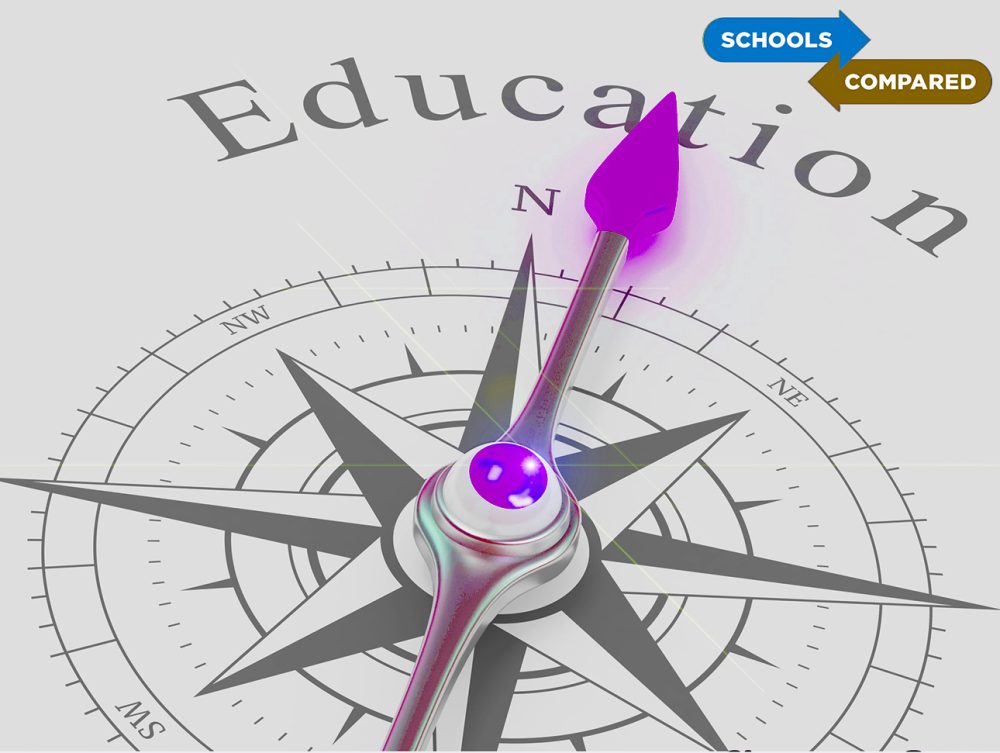
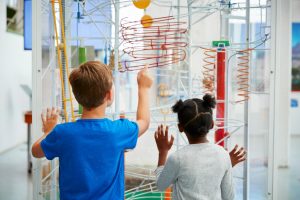


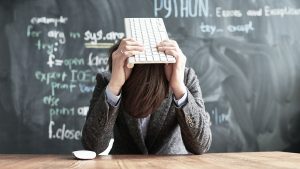
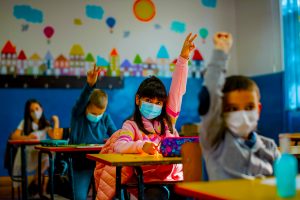

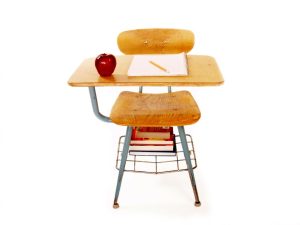

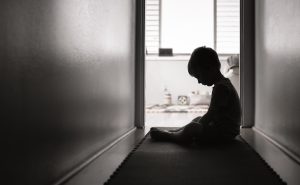
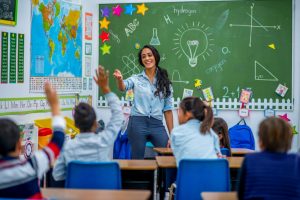


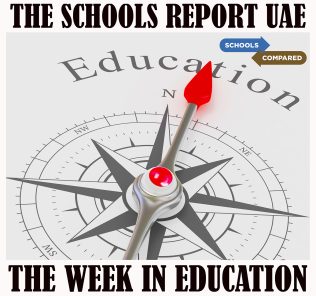
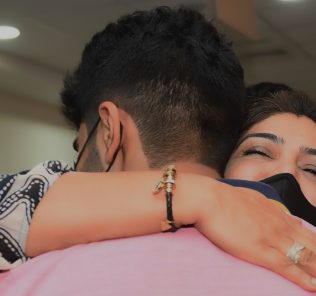
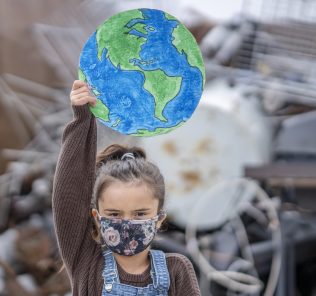



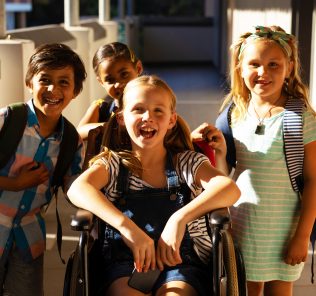













Leave a Response